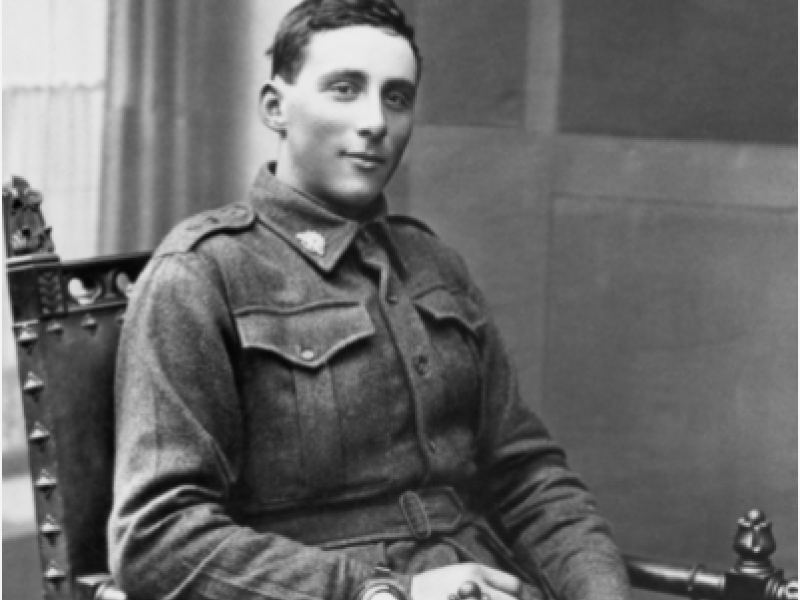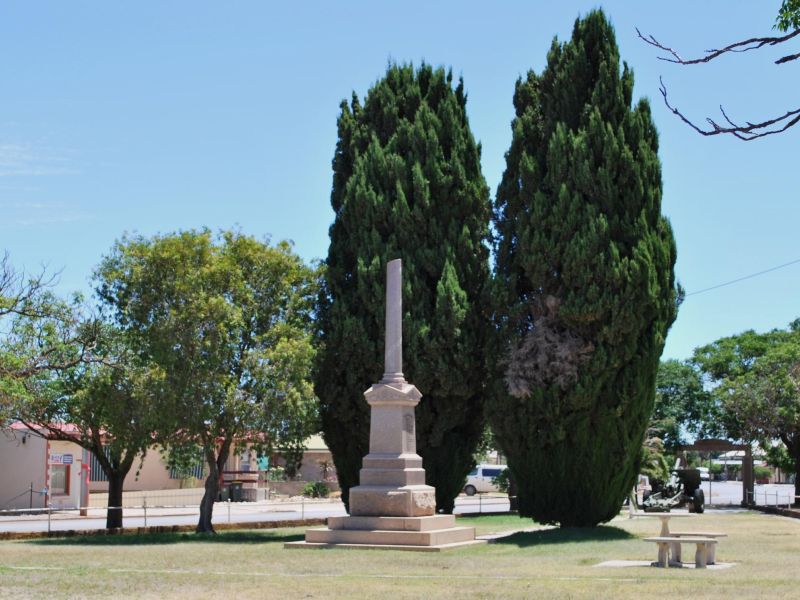Private William Charles Goldfinch, 50th Battalion, AIF
William Goldfinch, known as “Willie”, was born on 26 December 1896, the eldest son of William and Bessie Goldfinch of Curramulka, on the Yorke Peninsula in South Australia.
His early education was almost entirely private under a Mr Griffiths at Curramulka. In 1912, Willie’s parents moved to Meningie to run a small sheep station, and Willie went with them, studying through mail courses at home while helping his father run the farm.
Willie Goldfinch was desperate to go to war when it broke out in 1914 but needed parental permission to enlist. Willie asked his father as soon as he turned 18 who did not consent to his oldest son going to war until the following year.
Willie enlisted in the Australian Imperial Force from Adelaide in July 1915 and left for active service overseas with reinforcements to the 10th Battalion in September 1915.
Private Goldfinch was first sent to Egypt, meeting the 10th Battalion as it was evacuated from the Gallipoli peninsula. He continued training in the desert for several months before being transferred to the newly formed 50th Battalion.
The 50th Battalion arrived in France in June 1916, prepared to fight on the western Front. Its first major operation came in August 1916, when it entered the front line near the French village of Pozieres. Two days later, the 50th Battalion attacked towards a fortified farmstead called Mouquet Farm, suffering extremely heavy casualties from the constant shell-fire.
Private Goldfinch was not with the battalion when it was relieved from the front line after the attack. He was posted as missing for months, until a court of enquiry was held to determine his fate. Sergeant Annis, described as “a careful, reliable witness”, gave evidence that on 16 of August, Private Goldfinch was sitting in a trench with severe facial wounds. Another soldier went past Goldfinch, touching his body as he went through. As he did so, Goldfinch fell over, and the men could see that he was dead and probably had been for some time.
After the formal determination of Willie’s fate in 1917, his captain wrote to the family, saying “he could not have had an easier nor a more glorious death. He was both loved and admired by his officers and his comrades.”
Private Goldfinch’s remains were not found during the war, and remained missing for years. It was not until the Imperial War Graves Commission was continuing its work around Pozieres in 1928 that his body was discovered.
His family were notified, and his father wrote back to say “We are all pleased to hear that he has been found and has been cared for. Thanking all concerned very kindly … any other communication will be very welcome.”
Willie Goldfinch was reburied in the Serre Road Cemetery No. 2 in France, where he lies today under the words “Dearly beloved son of W & B Goldfinch, Meningie, South Australia”. He was 19 years old.
Meleah Hampton, Military History Section

 Australian War Memorial
Australian War Memorial